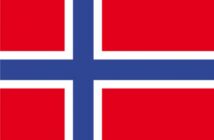International competitions are the pinnacle of many players’ career, allowing them to shine in front of millions of fans worldwide, but what about the men who pick them?
International football has the beautiful ability to pit global superstars against near-part timers. England vs San Marino is a prime example of the infamous international ‘David vs Goliath’ fixture- the only difference being David very rarely wins. Yet, these fixtures bring a sense of fascination.
The tongue-in-cheek balance that football’s lesser-known players have to contend with when finishing a shift at the local supermarket before jumping on a flight to, later that week, grace the hallowed turf of stadiums such as Wembley, Allianz Arena, and the Stade Olimpico is a phenomenon of which football is one of few industries to bless us with.
Both international friendlies and tournament football can serve as the ultimate platform for putting players’ names in the shop window ahead of impending transfer windows, and Euro 2020 is no different.
It’s undoubtedly that clubs across Europe will have sent their scouts scurrying to sniff out the swanky central midfielder hiding amongst North Macedonia’s ranks, or the hero-to-be shot-stopper that Ukraine’s goalkeeping department is fostering.
In fact, the ode to the Ukrainian goalkeepers’ union may not be too far off the mark. Heorhiy Bushchan has arguably been one of the tournament’s brightest prospects between the sticks thus far and it’s true – players can make or break their careers at international tournaments.
The Euros has brought its fair share of transfer love stories and career heartbreaks. On each end of the spectrum, we only need to look as far back as 2016 to see this theory in action. In fact, we don’t need to look beyond the UK’s national teams, either.
Joe Hart’s torrid time at Euro 2016 arguably marked the beginning of the end of the Englishman’s career as we knew it.
Hal Robson-Kanu’s stellar performances bought him interest from Atletico Madrid, and eventually earned him a Premier League move. In the case of the Welshman, it’s hard to argue otherwise. Three goals and five assists in just under 30 games for a 17th placed Reading side probably wouldn’t have been attributed to a player on Diego Simeone’s shopping list.
The creation of such careers begins long before these tournaments commence and they begin in an office at a training ground.
The tough nature of international managers
Why is it that the likes of Joachim Low, Didier Deschamps and Fernando Santos are rarely if ever, linked with high profile domestic jobs? Perhaps more interestingly, why is it that many of the managers entrusted with the job of managing their country’s (and often the world’s) best players in an environment where success needs to be immediate present CVs that wouldn’t see them shortlisted for jobs in the football league?
Perhaps that’s a slight over-exaggeration but many different factors come into play in regards to international vs domestic football. Different things are demanded in the tournament realm, however, the underlying principle is still to win as many games as possible – just in a shorter period of time.
As mentioned, let’s take the example of Joachim Low, and compare him to England’s Gareth Southgate.
Prior to taking the big role with the German national team, Low had managed:
| FC Frauenfeld | |||
| 1996–1998 | VfB Stuttgart | ||
|---|---|---|---|
| 1998–1999 | Fenerbahçe | ||
| 1999–2000 | Karlsruher SC | ||
| 2000–2001 | Adanaspor | ||
| 2001–2002 | Tirol Innsbruck | ||
| 2003–2004 | Austria Wien | ||
He then joined Jürgen Klinsmann in the national team set up, providing assistance to Klinsmann during his short-lived spell as Germany’s manager between 2004 and 2006. Of course, there are explicit reasons as to why Low was given the job. Germany hadn’t performed particularly badly under Klinsmann, and Low would ensure continuity in developing an attractive style of football – although it’s noted that Low wanted to improve the ball-keeping ability of the national side.
Low’s appointment has ultimately proved to be the right one, however, out of context, it was a rather bizarre decision to hand him the senior role, much as it was (again, out of context), quite strange that Gareth Southgate was entrusted with the infamous England managerial role – promoted from the U21 position, with his only other managerial experience being, ultimately, a failed crack at Middlesbrough between 2006 and 2009.
| Team | From | To | Record | |||||
|---|---|---|---|---|---|---|---|---|
| P | W | D | L | Win % | ||||
| Middlesbrough | 7 June 2006 | 21 October 2009 | 151 | 45 | 43 | 63 | 29.8 | |
| England U21 | 22 August 2013 | 27 September 2016 | 37 | 27 | 5 | 5 | 73.0 | |
| England | 27 September 2016 | Present | 56 | 35 | 11 | 10 | 62.5 | |
| Total | 244 | 107 | 59 | 78 | 43.9 | |||
Low had a very limited degree of experience with bringing success to teams with world-class players, respectfully, as is often needed in an international environment. Of course, you cannot definitely predict success in such situations, but there was little to indicate that Low would come close to this. As mentioned, we can’t and aren’t discrediting Low. He has done a fantastic job with a fantastic team and is rightly one of the world’s best international managers.
However, this trend seems to be apparent across the world. Playing for one’s country is the ultimate honour for a player, but when it comes to managerial appointments, it seems as if the top job, well, isn’t really viewed as the ‘top’ job. You could argue that only the very best managers should be in the hat for national jobs, but this doesn’t tend to be the case.
Jurgen Klopp was quick to distance himself from the Germany job, and Pep Guardiola wasn’t ever seriously linked with the Spain job despite their everchanging managerial situation. Roberto Mancini and Italy perhaps seems a ‘little more like it’, but the Mourinho/Portugal links, Pochettino/Argentina links, and perhaps even the Arsene Wenger/France links have never stood up. This is again out of context as neither France nor Portugal nor even Argentina need a new manager but the theory remains the same.
Why are none of these now-accomplished managers ever linked with domestic jobs?
Now some of the world’s best managers in their own respect, Didier Deschamps, Low, Southgate, Fernando Santos, and even the likes of Switzerland’s Vladimir Petkovic (53.3% win ratio), Croatia’s Zlatko Dalic (48.9% win ratio) and Sweden’s Janne Andersson (51.6% win ratio) are all taking the reigns of teams at Euro 2020, but when was the last time you saw any of these names linked with domestic jobs across Europe?
When a domestic team sacks a manager, similar reasons tend to be cited for the dismissal. The short-term success desired hasn’t been achieved, the manager has ‘lost the dressing room’ or there have been too many poor results in key matches. There are other reasons that come into play, but the second point is most likely applicable across the board; the players simply don’t want to play for a certain manager anymore.
One of the unique skills that the best international managers must hold is the ability to create and foster a collaborative, positive environment in the space of only a few weeks between players who, for the best part of the season, have been trying to kick lumps out of each other.
In an environment where virtually every game is a must-win game, managers don’t have the ability to commit to a long-term project in the same way a domestic manager will. As such, they have to create not only just a positive dynamic in the dressing room but a winning dynamic tactically on the pitch in a very short space of time.
We should, of course, consider that: A) international management jobs aren’t necessarily so intensely demanding as domestic jobs as games are sporadic and B) that international managers have always been able to pick the best players at their country’s disposal.
Naturally, the transfer market doesn’t work this way in domestic football. However, with the plethora of sporting directors/directors of football/technical directors that clubs now appoint, is this really such a big obstacle?
Ultimately, though, it’s not easy to manage global superstars. The seemingly never-ending manager hunt at Tottenham Hotspur makes the international manager theory ever more prominent. Could somebody like Santos, Low or Deschamps do a good job at a top Premier League club? Experience in bringing immediate success with, in reality, experience in managing big-name players is something that would surely bode well.
This theory could apply to several teams and managers across world football, but of course, each set of circumstances are different and in the meantime, these managers have got a Euros campaign to deal with.
As they say, the grass isn’t always greener on the other side.
Follow us on Twitter @ProstInt
![Prost International [PINT]](https://prostinternational.com/wp-content/uploads/2021/08/PINTtFontLogoRoboto1536x78.jpg)


